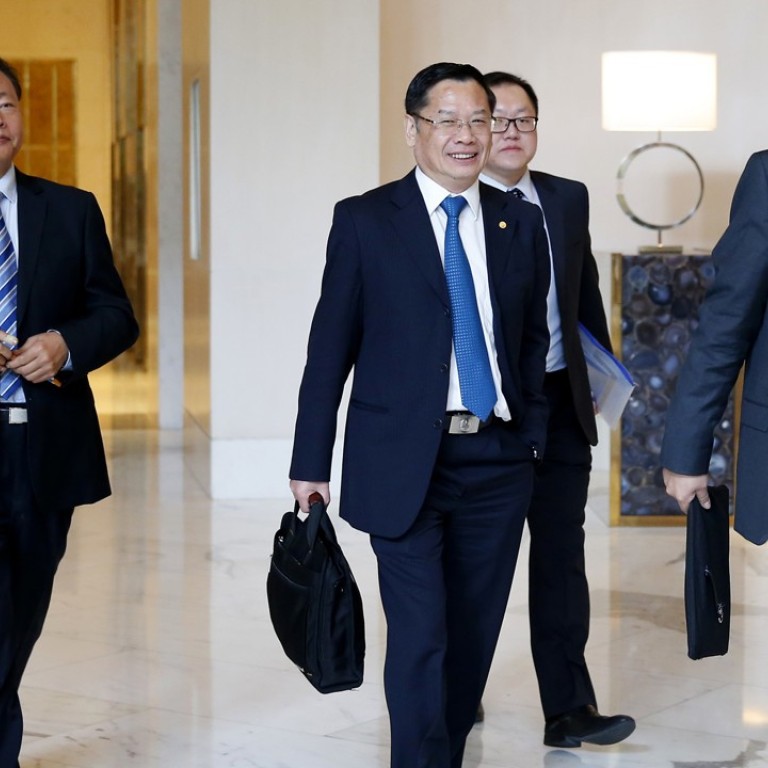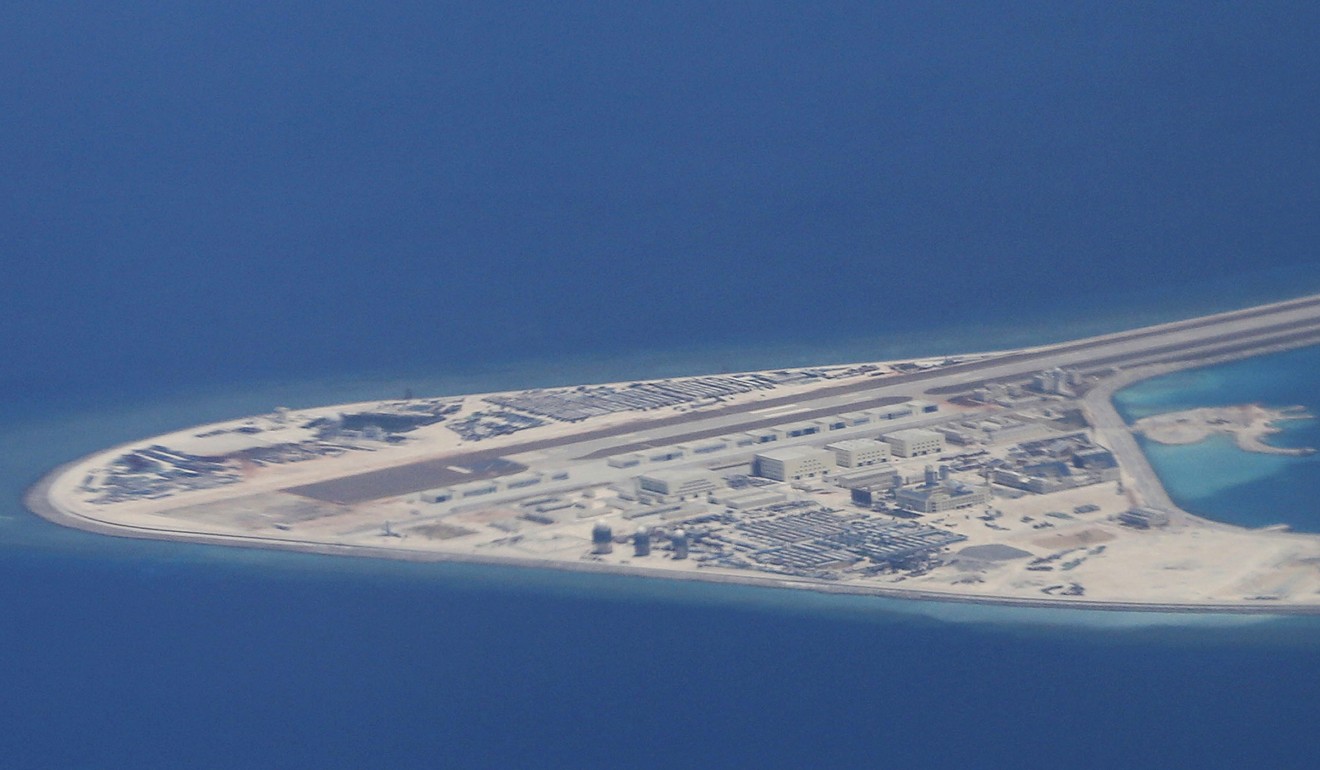
China, Philippines talks silent on militarisation of South China Sea
Beijing and Manila agree to pursue further joint efforts on oil and gas exploration in disputed waters but observers say they are likely to remain symbolic
China and the Philippines pledged to further cooperate to explore oil and gas in the South China Sea as the two sides wrapped up talks on managing disputes over the contested waters, but both sides were silent on China’s construction work and military activities in the region.
A statement released after the talks in Manila on Tuesday said both nations reaffirmed that maritime issues were not the “sum total” of Sino-Philippine relations.
The two sides had intensive discussions on convening working groups on oil and gas, plus other areas including fisheries, marine scientific research and marine environmental protection, the statement added.
China and the Philippines could strengthen cooperation in these areas “without prejudice to their respective positions on sovereignty, sovereign rights and jurisdiction”, the statement said.
The meeting was attended by the Philippine foreign undersecretary for policy, Enrique Manalo, and Chinese vice-foreign minister Kong Xuanyou.
The talks came a week after the Philippine Daily Inquirer published aerial photographs showing Chinese construction work and military facilities in the disputed Spratly Islands in the South China Sea.
The two governments’ statement did not mention Beijing’s artificial islands or militarisation in the South China Sea, but added the two sides agreed to continue discussions on confidence-building measures.
“With the objective of maintaining and promoting peace and stability in the region, both sides discussed ways to manage and prevent incidents at sea,,promote dialogue and cooperation on maritime issues and enhance mutual trust and confidence,” the statement said. “Both sides had a positive, fruitful and productive meeting.”
Observers said that although the meeting could help build trust and confidence between two countries, the unresolved sovereignty issues hindered how far they could cooperate.
Zhang Jie, a Southeast Asian affairs specialist from the Chinese Academy of Social Sciences, said the joint oil and gas exploration efforts would probably remain symbolic, such as setting up a team of researchers from both countries to assess the geography and reserve volume.
“China and the Philippines have discussed joint oil and gas exploration for years but still had very limited progress just because there are too much difficulties, like how to share the oil, how the joint company should be set up and how to split the profits,” Zhang said.
“And in reality, Philippine law forbids any other country from energy exploration in their ‘own’ waters.
“It’s way too early to talk about setting up a joint company to tap the oil.”

Clarita Carlos, a political-science professor from the University of the Philippines, agreed that any cooperation would likely be scientific, with Manila now more focused on renewable energy.
“Manila is very concerned about pollution from fossil fuels so the Philippines would not be highly motivated to explore oil in the contested waters. The joint cooperation on exploration would likely be scientific research activities,” Carlos said.
China claims almost all the South China Sea, where billions of US dollars worth of trade passes annually, but other Southeast Asian nations, including the Philippines and Vietnam, have rival claims.
Relations between China and the Philippines were hit hard after former Philippine president Benigno Aquino took the maritime dispute to an international tribunal in The Hague, which dismissed most of China’s claims in the disputed waters.
Ties have thawed since Aquino’s successor, Rodrigo Duterte, became president in 2016 and adopted a more friendly posture towards Beijing.
The two nations established a consultation mechanism in January last year to address their differences over the South China Sea.
A first meeting under the mechanism was held in May in Guizhou province and a third will be held in China in the second half of this year.

